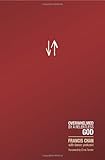
I’m a little late to get in on the action reviewing this book (loads of bloggers, including Phil Whitall, and Tim Challies have reviewed it already), but since I heard such good reports about it, and bought a copy for my wife earlier this year (she loved it), I decided to read it for myself.
Essentially it is a call to radical living – God is not content to simply be a small part of our lives. Chan starts off by inviting us to get some much-needed perspective by looking at who God is, and by contemplating our own smallness and mortality.
He really gets going as he challenges us about our lukewarmness. The chapter entitled “profile of the lukewarm” is not comfortable reading as it describes the “lukewarm” Christian in a way that questions how deep our commitment to God truly is. Our churches may be full of “Christians”, but how many are truly “disciples”? While he recongnises that we won’t attain sinless perfection, but that does not mean that it is OK not to be in a position of obedience and surrender.
Chan is careful not to obscure the gospel of grace – he is not trying to persuade us to earn or deserve our salvation by radical acts. Nor does he ever adopt a judgmental or superior tone – he is earnest and humble throughout. In fact, he lets the Bible do much of the work for him, simply quoting some of the challenging statements made by Jesus and other Biblical writers and allowing the weight of their message to sink in.
The chapter title “your best life … later” is obviously a play on Joel Osteen’s “your best life now”. Chan’s take on Christianity is one that is characterised by extreme generosity and risk-taking, rather than the desire for comfort and safety. The chapter entitled “Profile of the Obsessed” is the strongest, describing what a life fully devoted to God would look like. Phil Whittall has helpfully provided a series of quotes from that chapter on his blog which are well worth reading and pondering.
He includes a chapter that attempts to ground what he is saying in real-life examples with brief biographies of people he knows or has heard of who have put a radical sacrificial life into practice. He finishes by challenging us to imagine and pray about what changes we need to make in order to live a radical life.
In conclusion, I have to agree that this is a superb little book with a unsettlingly powerful message. It is written in such a way as to be accessible to a broad audience and if you get hold of a copy, be sure to lend it to many in your church. It is a tragedy that we have churches full of “lukewarm” Christians, who are often relying on what Bonhoeffer called “cheap grace” – the assumption that we can trust Christ for salvation but live more or less in the same way as those who do not know him. Francis Chan is a voice crying out in the wilderness, calling us to repent, and return to loving the Lord with our whole hearts, with a love that may make us look crazy. Will we respond, or will we dismiss him as an angst-ridden nutter?

I would agree with your assessment in every respect. I used to be a voracious reader but have been sorely disappointed w Christian books over the past few years. Francis Chan’s book has been a shining exception.
Now that he’s walked away from his church to pursue–I’m not sure what and I don’t know if he does either–I’d like to see him revisit this book’s theme in a couple of years. IMO, his leaving may lead to a deeper immersion in the implications of his teaching. I’m looking forward to hearing what he learns from it.
thanks Dave, from what I’ve seen and heard, Francis Chan is the real deal – he is genuinely wanting to practice what he preaches
This book changed my life.